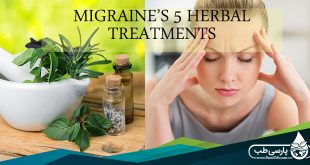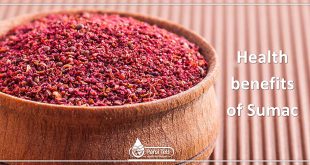Heart valve disease
Heart valve disease is when one or more valves in your heart aren’t working fully and blood doesn’t flow through your heart as it should. Heart valve disease is also known as valve disease or valvular heart disease.
About heart valve disease
Heart valve disease can put extra strain on your heart and cause symptoms such as breathlessness and swollen ankles. Severe heart valve disease can cause your heart to pump less efficiently. A number of treatments are available to help you deal with heart valve disease.
The heart
Your heart is a muscular pump that is divided into two sides. The right side of your heart pumps blood to your lungs to get oxygen, and the left side pumps oxygenated blood around your body.
There are two chambers on each side of your heart – the ventricles and the atria.
Heart valves
Your heart valves separate the chambers of your ventricle and atrium. The valve on the right side of your heart is called the tricuspid valve, and on the left is the mitral valve.
You also have valves on each side between your heart and the major blood vessels taking blood away from your heart. On the right is your pulmonary valve. On the left, between the left ventricle and the aorta, is your aortic valve.
Your heart valves are made up of flaps of thin, strong, tissue attached to the heart with fibrous cords. They can only open in one direction.
Your valves have two functions. They allow your blood to flow through them smoothly and prevent it from leaking back against this flow. Your valves allow blood to flow in one direction only.
The blood flow in the heart and major blood vessels
Heart valve disease
There are two problems that can affect your heart valves.
If your valve becomes narrowed, your blood can’t readily flow into the next chamber or blood vessel. This is called valve stenosis.
If your valve doesn’t close properly, blood leaks backwards in the wrong direction. This is called valve insufficiency or incompetence.
Both valve stenosis and valve incompetence put extra strain on your heart.
Stenosis
When one of your valves is stenosed or narrowed, there is resistance to your blood flow and so your heart has to work harder to get blood through it.
Incompetence
When your valve is incompetent, your heart has to work harder – it has to pump more blood than before because a proportion leaks back into your heart and has to be pumped out again. The blood behind the valve may also be under more pressure.
When incompetence occurs in the valves on the left of your heart, it can lead to a build-up of fluid on your lungs. This is called pulmonary oedema. When this happens on the right-hand side, it can lead to a build up of fluid in your body, particularly in your liver and legs – which is likely to cause your ankles to swell. Sometimes incompetence on the left side puts a strain on the right-hand side and can cause fluid in the lungs and the rest of the body.
Symptoms of heart valve disease
The symptoms of valve disease depend on which valve is affected, and how severely. If there is only mild disease, you may not have any symptoms.
If you have more serious valve disease, you may have:
breathlessness, especially when you exert yourself, such as when you exercise
tiredness
palpitations (irregular, fluttery heartbeat or an awareness of your heart beating)
angina (chest pain) because your narrowing valve reduces the blood supply to your heart muscle
swollen ankles or feet
dizziness or fainting
Complications of heart valve disease
If you have heart valve disease, regardless of how severe it is, your valve is more likely to become infected. A valve infection is called endocarditis and it can be very serious.
If you have heart valve disease you may need to take a short course of antibiotics before you have surgery to prevent infection. Ask your GP for more advice.
Causes of heart valve disease
There are a number of possible causes of heart valve disease. These include:
rheumatic fever during childhood – this disease is no longer common in the UK but still affects people in developing countries
a congenital deformity which means you were born with a defective valve
cardiomyopathy – if your heart muscle becomes thickened or dilated, it can obstruct blood flow
age – as you get older, your valves become less flexible, and more stretched or torn
Diagnosis of heart valve disease
Your GP will ask about your symptoms and examine you. He or she may also ask you about your medical history. Your GP will listen to your heart with a stethoscope to check for a murmur – an extra noise to the usual heart sounds, which can be caused by blood passing through a damaged valve.
If your GP thinks there may be a problem with your heart, he or she may refer you to a cardiologist (a doctor specialising in identifying and treating conditions of the heart and blood vessels), who can carry out more specific tests. These may include:
an electrocardiogram (ECG), a test that measures the electrical activity of your heart to see how well it is working
an echocardiogram, an ultrasound scan that produces a picture of the inside of your heart
a chest X-ray
an angiogram, where a small tube (catheter) is threaded up to your heart through an artery – usually in your groin. A dye that shows up on X-rays is injected into your blood stream and X-rays are taken to produce an image of the blood flowing through your heart
cardiac CT imaging – a CT scan that uses X-rays to make a three-dimensional image of your heart
Treatment of heart valve disease
Your treatment will depend on what is wrong with your valve and how serious the problem is. You may not need any treatment at all. If this is the case, you will still need regular check-ups with your GP to check that your heart valve doesn’t get any worse.
Medicines
You may be prescribed medicines to relieve your symptoms. These include:
diuretics (eg furosemide, spironolactone) – these help to reduce swelling by encouraging your body to get rid of excess water in your urine
ACE inhibitors (eg ramipril, perindopril) – these help your heart work more effectively by relaxing your blood vessels and so improving blood flow
digoxin (eg Lanoxin, Lanoxin-PG) – this stabilises your heart rhythm and helps your heart pump harder
beta-blockers (eg bisoprolol fumarate) – this controls your heart rhythm and can make your heart beat stronger
Surgery
Balloon valve surgery
If your valve has narrowed (stenosis), your doctor may recommend balloon valve surgery – also called balloon valvuloplasty.
In this procedure, a small tube (catheter) is threaded up to your heart through an artery, usually in your groin. A guidewire, with a deflated balloon at the end, is passed up the catheter. When it reaches your narrowed valve, the balloon is gently inflated to stretch the valve. The balloon is then deflated and removed, leaving a widened valve that your blood can flow through more efficiently.
Heart valve surgery
If you have serious valve disease, you may need heart valve surgery to prevent permanent damage to your heart.
The two types of surgery are:
valve replacement – your faulty heart valve is replaced with a prosthetic (artificial) valve
valve repair – your valve may be repaired if possible
Heart valve surgery is carried out under general anaesthesia, which means that you will be asleep during the operation.
Special considerations
If you’re pregnant
During pregnancy, your blood volume and heart rate increase and your resistance to blood flow decreases.
If you have mild or moderate heart valve disease and become pregnant, there is a low risk of heart problems during pregnancy, and careful medical supervision is advised.
If you have severe heart valve disease and are keen to have a baby, your GP may advise you to have valve surgery before you become pregnant. Severe valve disease is sometimes only identified during pregnancy. If this happens, it’s usually possible to continue with the pregnancy under careful medical supervision.
Living with heart valve disease
If you have heart valve disease, you may have a yearly check-up with your cardiologist. This check-up is very important, even if you feel completely well. You might not need treatment for many years, if ever, but a careful, regular watch will make sure that you get any treatment you need at the right time.
Help and support
Contacting other people who have heart valve disease through charities and patient groups can be a good way to obtain support and advice.
 Parsi Teb Physical and Mental Health Journal
Parsi Teb Physical and Mental Health Journal 


